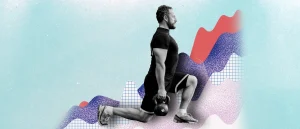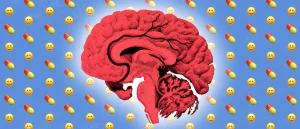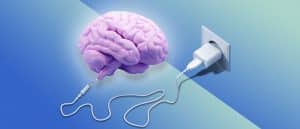I’m a Psychotherapist. These Are All the Supplements I Take to Fight Seasonal Depression
- By Rebekah Harding
- November 9, 2023
30-Second Takeaway
Seasonal affective disorder, or seasonal depression, is caused by changes in sunlight exposure. These changes can negatively impact the body’s internal clock, sleep and wake schedule, and hormones. Supplements like vitamin D and B12, ashwagandha, SAM-e and 5-HTP, CBD, and omega-3 may help alleviate some symptoms of SAD, such as anxiety, mood problems, and poor sleep.
I
f you’re like us, the mental benefits of daylight savings time end as soon as that extra hour of sleep wears off. After that, the sun setting before the end of the workday coupled with chilly weather gives way to an annual case of seasonal depression, or seasonal affective disorder (SAD).
SAD is linked to changes in daily sunlight exposure and how it impacts your body’s internal clock, sleep patterns, and mood-regulating hormones like serotonin (1). SAD isn’t just linked to depression. People who have this seasonal condition may experience heightened anxiety, mood problems, poor sleep, and low sex drive (2).
“SAD is very common, even in people who don’t have clinical depression,” says psychotherapist and director of the Bay Area CBT Center Avigail Lev, PsyD. “[I get] more new client requests during the winter, which may be due to seasonal changes.”
About the Expert:
Dr. Avigail Lev is a psychotherapist, author, mediator, and executive coach. She is the director of the Bay Area CBT Center, a clinic that specializes in Cognitive Behavioral Therapy (CBT).
Supplements for Seasonal Depression
If you feel the winter blues setting in, optimizing your supplement stack can help. These are the vitamins and compounds that Lev takes to ward off seasonal depression.
Vitamin D
A lack of vitamin D is one of the most well-known culprits of SAD, as less sun exposure tanks your levels (3).
“Seasonal depression is related to circadian rhythm disturbance and the amount of sunlight we receive,” Lev explains. “When we have reduced sunlight exposure, it becomes even more important to take vitamin D supplements.”
One study found that taking 5,000 IU of vitamin D per day during the winter months alleviated SAD symptoms (4).
Ashwagandha
Ashwagandha is an adaptogenic herb that has been linked to reduced stress levels, increased testosterone, and cortisol regulation (5).
There’s no research that directly links ashwagandha and seasonal depression. But Lev notes that the medicinal herb has been shown to reduce anxiety, which may put a dent in your SAD symptoms.
“Ashwagandha is quite effective for people who are struggling with anxiety or difficulty sleeping,” Lev says.
Vitamin B12
“Vitamin B12 helps with energy for individuals experiencing depression who tend to start feeling lethargic and fatigued,” Lev says.
Research shows that keeping your vitamin B12 levels in a healthy range may prevent depression symptoms. A 2013 clinical trial found that 100 percent of people with depression and low vitamin B12 levels who took the supplement had at least a 20 percent improvement in their mood (6).
SAM-e and 5-HTP
Lev recommends SAM-e and 5-HTP supplements to stave off symptoms of seasonal depression, including low mood and energy.
SAM-e is a compound that your body naturally produces, which plays a role in the production of mood-regulating neurotransmitters like serotonin, dopamine, and norepinephrine (7). 5-HTP is an amino acid that your body converts into serotonin, which can boost mood, sleep, and appetite (8).
However, SAM-e and 5-HTP supplements aren’t a good choice for everyone.
“SAM-e is very effective for improving mood, but it can induce a manic or hypomanic episode for people with bipolar disorder,” Lev warns. “Also, people who take antidepressants need to be careful with 5-HTP so that they don’t get serotonin syndrome.”
CBD
Cannabidol (CBD) is a compound in cannabis plants that reduces anxiety, influences mood regulation, and improves sleep, according to Lev.
CBD interacts with your body’s endocannabinoid system, which helps regulate mood (9). A 2022 study found that CBD supplementation improved anxiety in people who previously didn’t have good results from anxiety medication (10).
Omega-3 fatty acids
Omega-3 fatty acids—ALA, DHA, and EPA—are healthy fats that may stave off seasonal depression.
“Omega-3 fatty acids support brain health, reduce inflammation, and help manage stress, which can contribute to improved mood and reduced symptoms of seasonal depression,” Lev says.
Research has found that omega-3s may also play a role in regulating your circadian rhythm. A 2022 study found that adults with low omega-3 levels had shorter than normal sleep patterns (11). This suggests that upping your omega-3 could help you clock in more Zs.
References
1. Melrose (2015). Seasonal Affective Disorder: An Overview of Assessment and Treatment Approaches.
2. National Institutes of Mental Health. Seasonal Affective Disorder.
3. Wacker, at al (2013). Sunlight and Vitamin D.
4. Chipowick (2013). Vitamin D and Depressive Symptoms in Women During the Winter: A Pilot Study.
5. Lopresti, et al (2019). An investigation into the stress-relieving and pharmacological actions of an ashwagandha (Withania somnifera) extract.
6. Syed, et al (2013). Vitamin B12 Supplementation in Treating Major Depressive Disorder: A Randomized Controlled Trial.
7. ScienceDirect. S-Adenosyl Methionine.
8. MedlinePlus. 5-HTP.
9. Capodice, et al (2021). The endocannabinoid system, cannabis, and cannabidiol: Implications in urology and men’s health.
10. Berger, et al (2022). Cannabidiol for Treatment-Resistant Anxiety Disorders in Young People: An Open-Label Trial.
11. Murphy, et al (2022). Association of omega-3 levels and sleep in US adults, National Health and Nutrition Examination Survey, 2011-2012.










